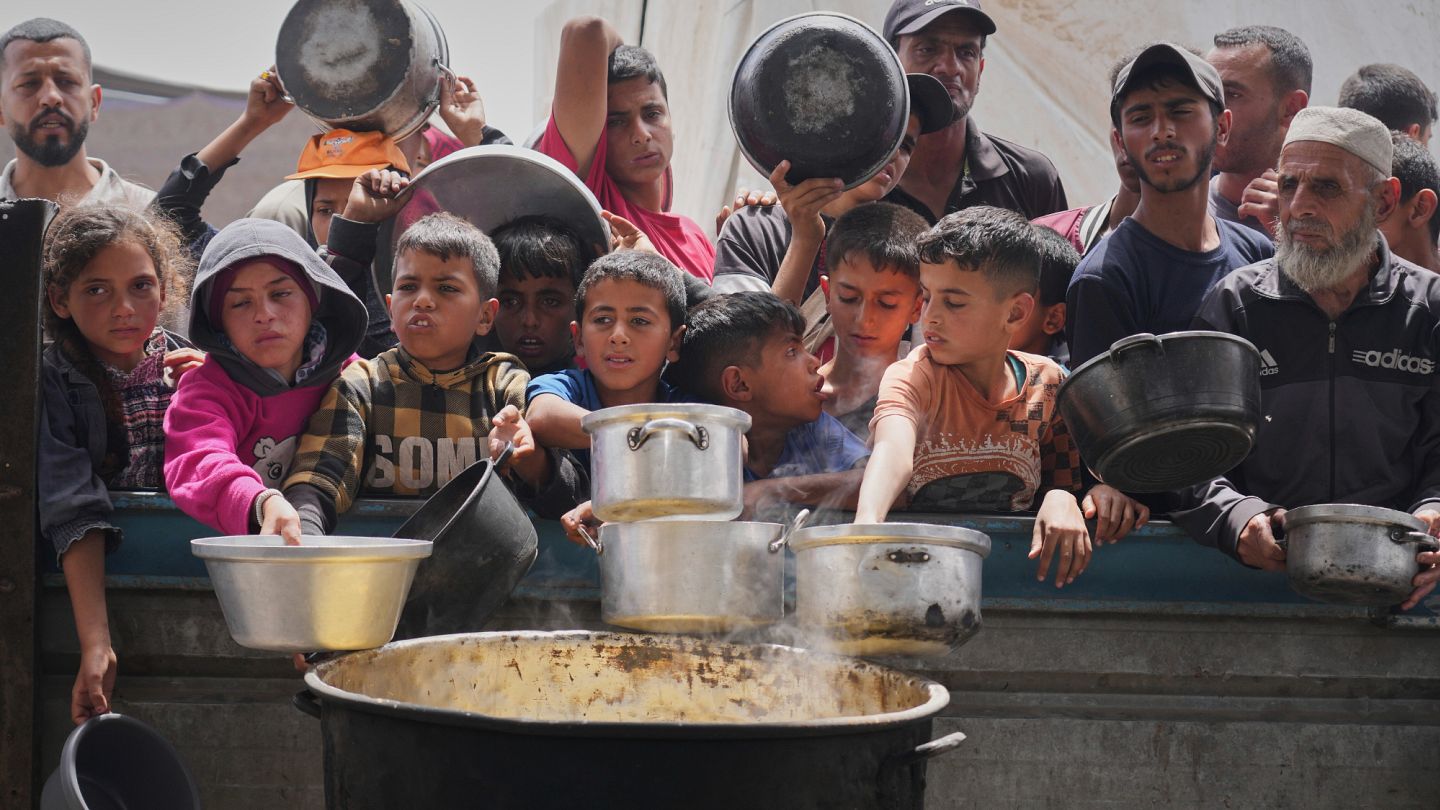US-backed group issues proposal to take over Gaza aid distribution from UN, reports claim
Aid workers have criticised the plans, saying the proposal can't meet the needs of Gaza's large population and would forcibly displace large numbers of Palestinians by forcing them to move nearer aid hubs.
A group of US security contractors, former military officers and humanitarian aid officials is proposing to take over the distribution of aid to Gaza based on plans similar to ones designed by Israel.According to a proposal from the newly created group, the Gaza Humanitarian Foundation (GHF), obtained by AP, the idea is to implement a new aid distribution system supplanting the current one run by the UN and other international aid agencies.The 14-page proposal circulated this week among aid groups and UN officials lays out plans similar to those Israel has been discussing privately with international aid groups for weeks.Under the new group's proposal, Palestinians would receive pre-packaged rations, potable water, hygiene kits, blankets and other supplies at four distribution hubs under the protection of private security contractors.The group said it wants to partner with the UN and international aid groups in handing out their supplies.A US official confirmed the authenticity of the proposal and said David Beasley, the former director of the UN World Food Program, is the lead choice to run GHF.The official, speaking on condition of anonymity to discuss plans that have not been made public, said the proposal could still be revised, and Beasley's role is not confirmed.Israel has blocked food, fuel, medicine and all other supplies from entering Gaza for 10 weeks, worsening a humanitarian crisis for the 2.3 million Palestinians living in the enclave.Officials say the aim of the blockade is to force Hamas militants to release the 59 hostages they still hold in Gaza.Israel has also said it won't allow aid back into the Strip until a system is in place that gives it control over distribution.A UN official said last week that Israel's plans would "weaponise aid" by placing restrictions on who is eligible to receive it.Israel accuses Hamas and other militants of siphoning off large amounts of aid for personal gain and to strengthen their units. The UN and aid workers deny there is a significant diversion.How would the proposal work?According to the document, GHF would initially set up four distribution sites, each serving 300,000 people.That would cover about half of Gaza's population. The system would be scaled up to meet the needs of 2 million people.But the proposal does not provide a timeframe, and aid workers warn that food is rapidly running out in Gaza under Israel’s blockade.The GHF proposal said subcontractors would use armoured vehicles to transport supplies from the Gaza border to distribution sites, where they would also provide security.It did not specify who would provide security but said it could include personnel who previously worked in the Netzarim Corridor, an Israeli-held zone cutting off northern Gaza.A private logistics and operations company, Safe Reach Solutions, has operated in the corridor.GHF said people would receive assistance based on need, with no eligibility requirements. Aid workers say Israel has said it intends to vet aid recipients and screen them using facial recognition.What have aid groups said?Aid workers have criticised the plans, saying the proposal could not possibly meet the needs of Gaza's large population and that they would forcibly displace large numbers of Palestinians by forcing them to move nearer to the aid hubs.Throughout the Israel-Hamas war in Gaza, the UN and other humanitarian groups have been carrying out a massive aid delivery programme.They have trucked in supplies and distributed them across the territory, going as close as possible to where Palestinians were located.What has chiefly hampered the system, aid workers have said, are Israeli military operations and restrictions on movement, as well as the low amount of aid allowed to enter even before the blockade.Convoys have also been attacked by criminal groups stealing aid, and Palestinians have sometimes taken supplies from trucks.Aid workers have cast doubt on whether GHF would meet humanitarian requirements for neutrality and independence.Shaina Low, communications adviser for Norwegian Refugee Council, one of the main organisations in Gaza, said aid groups are concerned the plan will be used "to advance military and political goals."By forcing the population to relocate around aid hubs, the system would "depopulate entire parts of Gaza" and could be used to potentially expel the population, she said."They are framing (the plan) to fix the problem that doesn't really exist," she said, referring to Israel's claims that it must prevent Hamas from stealing aid.The use of private security companies has also alarmed humanitarian workers. While it's common for private security firms to operate in conflict zones, they have to respect humanitarian law and, at minimum, be fully vetted and monitored, said Jamie Williamson, executive director of the International Code of Conduct Association.Tamara Alrifai, communications director for the UN agency for Palestinian refugees, UNRWA, which has led the aid effort in Gaza, said the plan was logistically unworkable.She said the foundation does not appear able to match the current infrastructure needed to distribute food and address other humanitarian needs.


